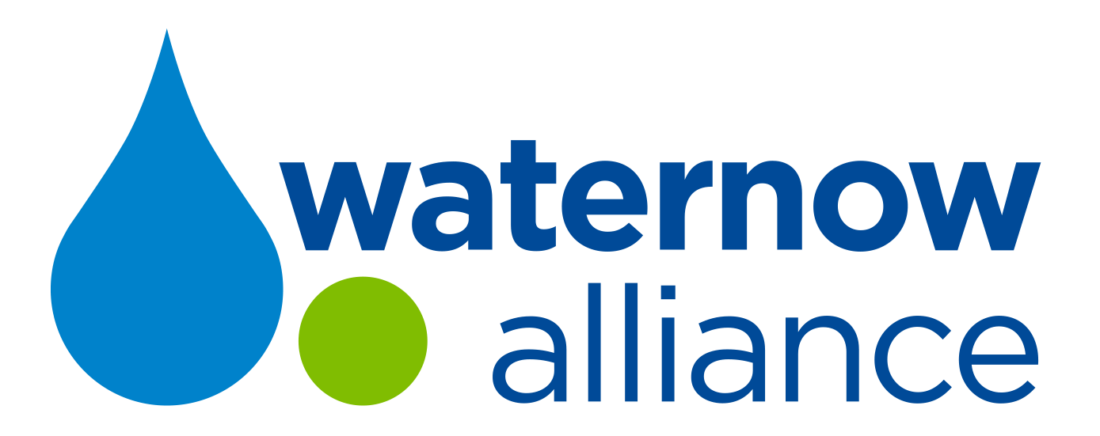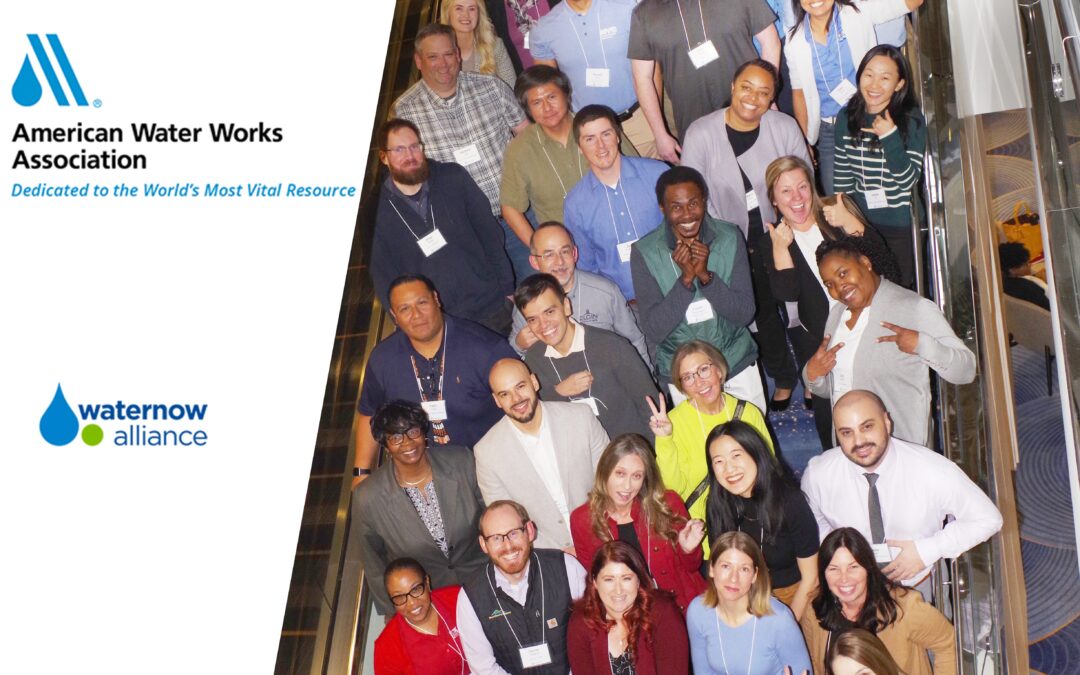WaterNow Alliance and AWWA recently hosted the Transformative Water Leadership Academy (TWLA) Diversity, Equity, and Inclusion (DEI) Workshop in Atlanta. The cohort, comprised of water utility professionals from across the United States and Canada, came together to learn, reflect, and grow as transformative leaders in the water sector who are equipped to advance DEI in their personal life, professional roles, and in their communities. Learn more about the activities, speakers, and take-aways from the three-day workshop below. Interested in learning more about TWLA? Check out our website!
Thank you to Donald Douglas Photography for capturing the event!
Touring Onsite Water Reuse & Engaging with Civil Rights History
The first day of the workshop included a tour of Atlanta, stopping first at The Piedmont Hospital Water Hub, an eco-engineered water wastewater reclamation and reuse system that reclaims up to 250,000 gallons of wastewater per day from the hospital. The Hub produces recycled water that can be used in the hospital's boilers and cooling towers, reducing its municipal drinking water footprint by as much as 40%. The cohort had the chance to hear from experts from NextEra Energy Resources and H2O innovation and explore the impressive facility.
Next, we heard from Professor Todd Michney from Georgia Institute of Technology on the history of redlining and structural inequality in the United States. Dr. Michney explained how race has played a dominant role in land use rules throughout the past with rippling impacts on the present – creating a pattern of inequitable access to housing, financing, and water infrastructure based on race and wealth.
Our last stop on our tour was a visit to the National Center for Civil and Human Rights to explore the Rolls Down Like Water: U.S. Civil Rights Movement exhibit. The TWLA cohort was immersed in the sights, sounds, and interactive displays of the individuals and groups who bravely worked to transform a segregated nation into one that is more inclusive and equitable. Taking a step back in time to honor and celebrate those who championed DEI in the past allowed for reflection on the importance of continuing the effort to address present inequities.
Diving in on DEI in the Water Sector
The second day of the workshop focused on exploring DEI at the individual, organization, and community levels. The day kicked off with two inspirational speakers – Donnell Duncan, Associate Vice President of Arcadis, and Chair of AWWA DEI committee, and Jessica Dandridge-Smith, Executive Director of The Greater New Orleans Water Collaborative – who spoke to the sector wide environmental justice challenges and importance of diversity, equity, and inclusion in the water industry.
The cohort then delved inward to explore social identity, privilege, and unconscious bias through a mix of group activities and table discussions facilitated by our TWLA leadership team and Hayley Williams, Workforce Development Training Specialist from Charlotte Water. To set the stage for the organizational and community level DEI focus of the afternoon, Hattie Portis-Jones, Fairburn, Georgia Councilmember and WaterNow Leadership Council Member, spoke to the cohort during lunch about the importance of relationships between elected officials and municipal water resource managers, with a focus on overcoming DEI challenges. After lunch, Bernard Franks, Chief Executive Officer of Clayton County Water Authority, spoke to his experience facilitating organizational change and advancing DEI at his water utility. Donnell Duncan then rounded out the organization level focus by sharing a powerful example of how he and others at his organization came together to successfully transform internal culture – inspiring the cohort to “be the spark” for change upon returning to their utilities and organizations.
The last session of the day on Thursday was dedicated to transformative leadership and environmental justice in the community. We heard from two champions of their respective communities, Jessica Dandridge-Smith, Executive Director of The Greater New Orleans Water Collaborative, and Dr. Na'Taki Osborne Jelks, Co-Founder and Executive Director of The West Atlanta Watershed Alliance, on how historical inequity has led to sustained patterns of injustice in Black urban communities today. WaterNow’s Policy Director, Caroline Koch, facilitated a discussion between Jessica and Na’Taki focused on exploring the most pressing water challenges their communities face today because of historically racist policies and the strategies they are using to overcome those challenges. The cohort then heard from Sheyda Esnaashari, Senior Technical Assistance Specialist with the EPA, about the expanded scope of assistance offered by the EPA to foster cultural competencies within water utilities to address and overcome inequitable water systems.
We wrapped up the day with Emerson O’Donnell, WaterNow’s Program Manager, sharing WaterNow’s Vision for an Equitable Water Utility with the cohort, followed by a table activity that asked the cohort: What makes an equitable water utility? Cohort members discussed and wrote down the factors they think make an equitable water utility, as well as the ways in which their utilities are advancing these elements and the areas in need of improvement.
The last day of the workshop focused on the cohort’s capstone projects and setting goals to take back with them to their organizations. We helped the cohort envision their capstone projects by sharing their ideas with one another, journaling, and meditating. Then, before jumping into goal setting, Becky Anderson, WaterNow’s Program Manager, shared the factors that make an equitable water utility, identified by the previous evening’s table discussions. The cohort then set goals for themselves at the personal, organizational, and community level before having lunch and parting ways.
We asked the cohort for their feedback on the highlights of the workshop and the areas in need of improvement. Below are a couple of highlights expressed by the cohort:
“The creation of such a safe place to share raw, relatable, thought-intriguing and challenging stories and experiences.”
“The diversity of the cohort and the opportunity to meet and get to know each other.”
“Amazing speakers – so impactful to hear real stories, real situations, and to the given some tools to bring home.”
----
We want to extend a heartfelt thank you to the 2024 TWLA cohort for their engagement and vulnerability – we learned so much from their insights, questions and feedback. We also want to extend our gratitude to our speakers and the TWLA leadership team – Melanie Simons, Susan Allen, Alane Boyd, Barb Martin, and Tim Worley – for supporting the successful workshop.














